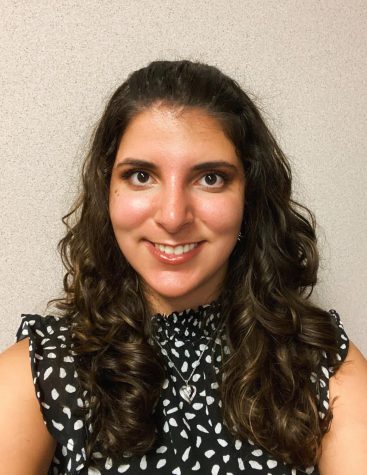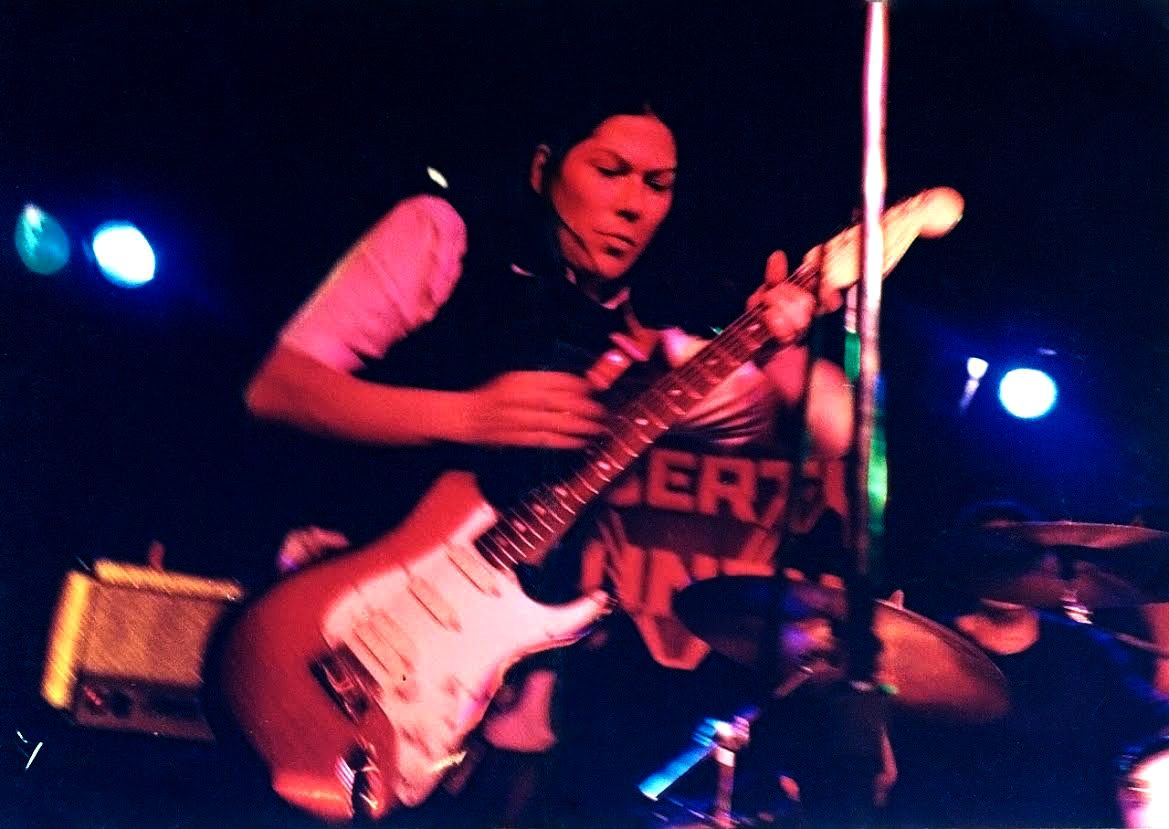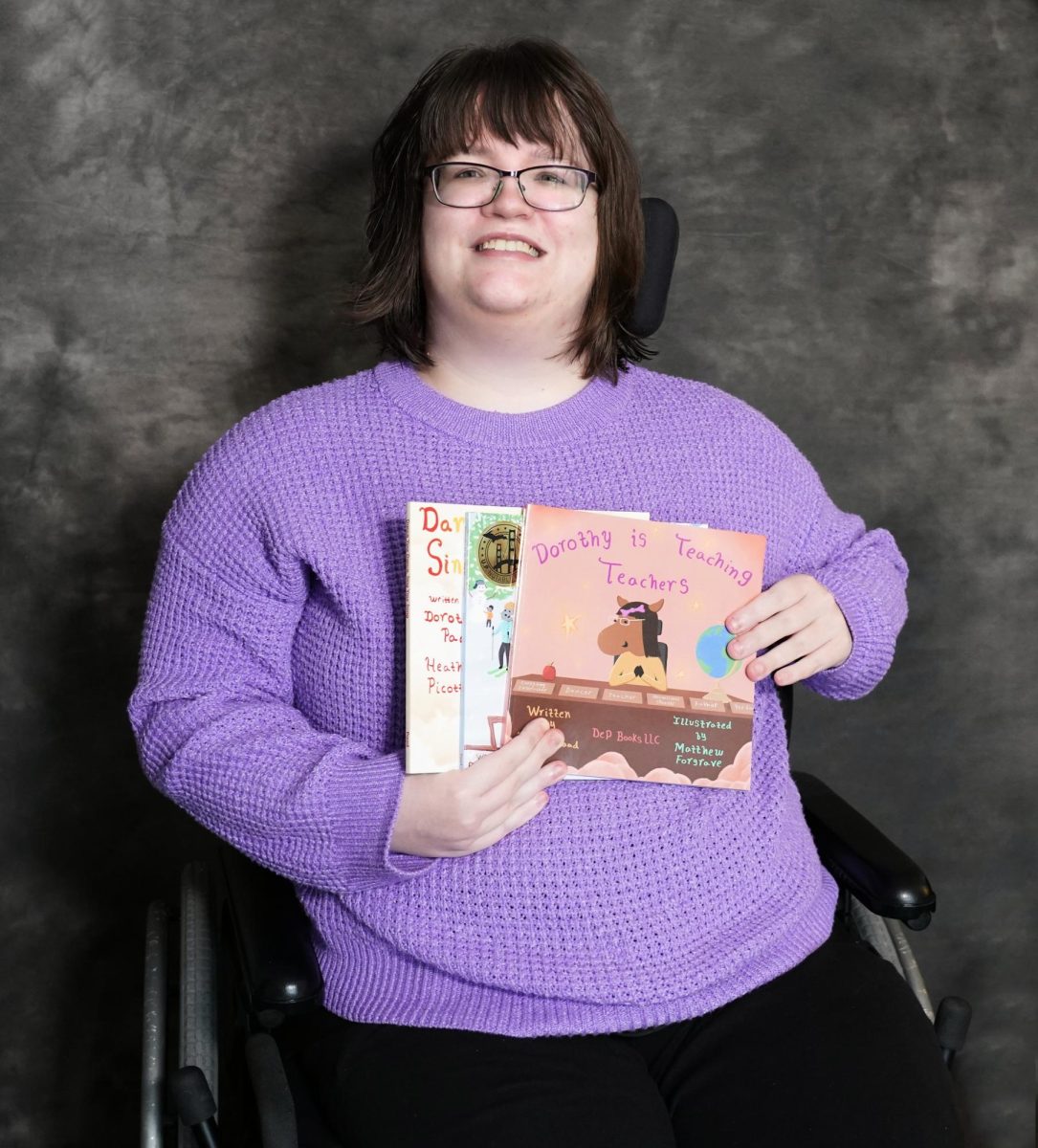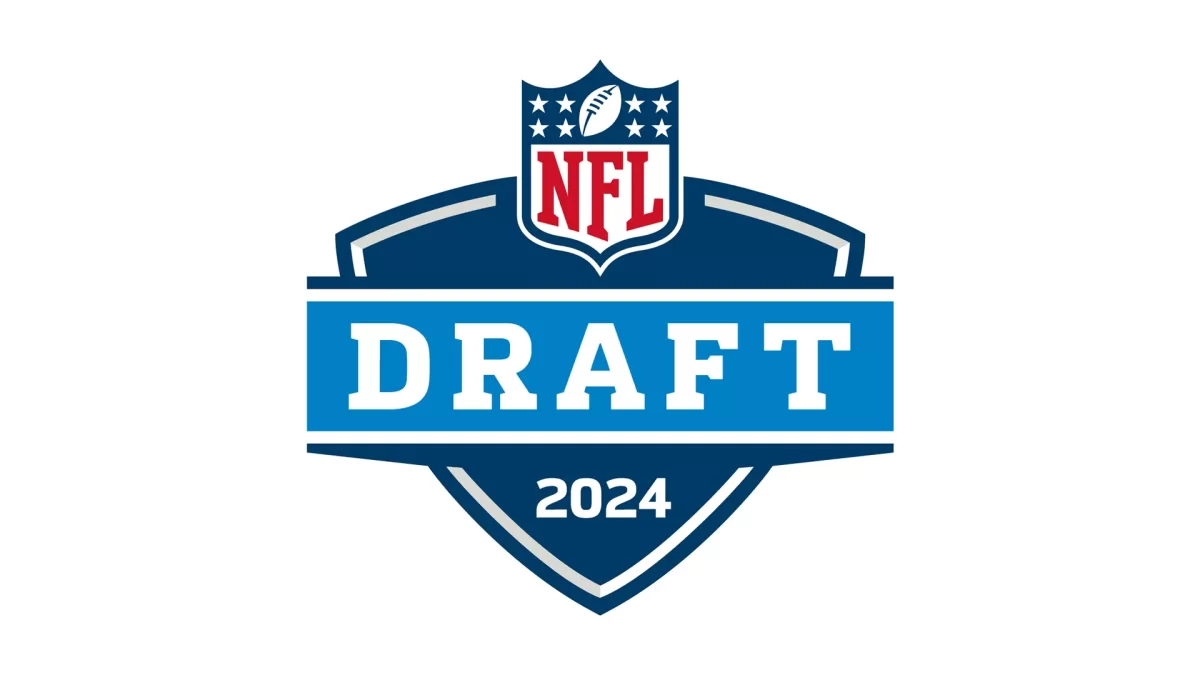Exposure – 10/17/2020 – TRANSCRIPT for The Borgen Project
October 18, 2020
Disclaimer: The contents of this interview do not reflect the values or represent the values of WDBM The Impact.
Interview Transcript
Connie Rahbany: Hello and welcome to Exposure. I’m your host, Connie Rahbany, and today I’m interviewing with Madison Routledge from the Borgen Project. Thank you for joining me.
Madison Routledge: Thank you for having me, Connie.
Connie Rahbany: And can I have you introduce yourself and tell me a little bit about you?
Madison Routledge: Yeah. My name is Madison Routledge and I am a working young professional in the city of Lansing. I work for a nonprofit, um, and during my free time, I recently took on an internship with the Borgen Project, which is a national innovative campaign that works to eliminate extreme poverty by making it the focus of U.S. Foreign policy.
Connie Rahbany: So what sort of advocacy do you focus on and what is the overall goal that’s trying to be achieved?
Madison Routledge: So the Borgen Project really seeks to eliminate extreme poverty globally. in the world, there are 736 million people that live in extreme poverty. And, half of the world’s poor live in just five countries. And the Borgen project seeks to eliminate that extreme level of global poverty, which is anyone living on less than a dollar 90 per day and what’s. So awesome about the belief of the Borgen Project is that that extreme poverty is not inevitable. That poverty has reduced by 50% since the early nineties and poverty reduction rates are expected to slow over the next few decades. So that’s something that the Borgen project is working to fight against. We want to keep the heat on the fight of extreme poverty, and we do that by mobilizing and advocating and lobbying individual constituencies around the United States. So, the Borgen Project has internships or ambassadors that are all over the country. I think they have around, they have over 400 interns that live and work around the United States who seek to mobilize their individual communities. And they do that by calling their Congress leaders. They do that by emailing, by setting up meetings, by advocating and lobbying and going to town hall meetings and really putting pressure on their local congressional leaders so that when the congressional leaders hit the floor to vote on a bill that could change and reduce poverty, those congressional leaders know that their constituency cares about this issue and it’s through engaging those micro communities, like the community of Lansing and East Lansing. It’s by engaging you guys to communicate with your leaders. I think Michigan state lives in the eighth congressional district. So your Congresswoman is Elissa Slotkin so by engaging her and telling her that the elimination of poverty matters to you, she’s going to go and vote on the floor for life changing policy that can eliminate poverty. And it’s really cool how small scale initiatives can literally change the world.
Connie Rahbany: So are these initiatives communal or individual to the area?
Madison Routledge: That’s, what’s cool about the Borgen project as well, is that they allow for these interns to engage their community in whatever ways they see fit to raise awareness through whatever creative means you can, whether that be having a local coffee night in your subdivision and inviting your neighbors to come out and hear about the organization or whether that be just you sitting in traffic. And instead of just sitting in traffic, wasting your time, you’re using that time to say, Hey, I’m going to call my Congress leader and tell her to support the international affairs budget. And those calls take 30 seconds maybe, and they can really make a difference. And there’s also so much opportunity and freedom within the Borgen project model for people that take initiative in whatever creative ways they want and whatever ways that are going to spread the mission and vision of what they’re doing. And as an intern, we are given tasks to do each week, um, and the tasks are pretty loosely worded. So some of the assignments are individual and some of the assignments require creating a community. We have this assignment that’s called make a swarm and then we have to post pictures and a, a swarm is essentially just a group of as many people as you can, all calling your congressional leader on the same day about the same issue. So the staff are like, wow, there were 20 people today that called about this one issue and events like that really make a difference.
Connie Rahbany: And what sort of opportunities of change and involvement are there for those in the Lansing area and who can get involved.
Madison Routledge: So there are so many ways to be involved no matter where you live, but especially in Lansing. If you’re a college student or if you are an elementary school student, or if you are 90 years old, There are ways to participate in your local government to make a change to eliminate global extreme poverty. And there are ways for you to be involved in the Borgen project and the mission of the Borgen project. So I work a full time job and on the side I do this internship and so it’s really not limited just to college students. If you’re a college student and you’re looking for an internship or some extra like you need it, that credit for a class, the Borgen project can satisfy that requirement. If you are an elementary school student, who’s not old enough to vote, but are really passionate about being involved in the political process, the mission of the Borgen project is so accessible to that demographic as well. And the cool thing about calling congress is, there’s not an age limit. Voting is really important, but I think that the mission of the Borgen project is now more than ever important because it encourages people to become involved in the political process in a way that extends past voting. I think that a lot of times It can be discouraging to know that maybe voting is your only option to participate, but that’s not the case. And we’ve had kindergarten classes call their Congress leaders because it’s your government too, in a way that you can interact with on a daily basis. You can call your Congresswoman every day. I’m meeting with an area representative of Congress woman Slotkin’s office tomorrow. And I get to talk to her about bills that I think are really, really important for us to be focusing on in this upcoming year. I think that for U.S. Americans, especially, I think it’s easy to be distracted by the current political climate and these issues that seem to be so massively important and to forget about hot button issues, quote, unquote, like hot button issues that were kind of a thing of the past. Like for awhile, I don’t know like human trafficking was a trendy cause and ending poverty can be look trendy. But to remember something like global poverty in a climate, like today is really important because eliminating poverty is connected to everything. It’s connected to all political issues. It’s connected to the United States economy, how much aid the United States gives to other countries can impact how well our economy’s doing. And so things are really connected and calling your Congress person or showing up to a local town hall meeting is a way that you can directly have your hand in that process. So that’s one way is just call your congressperson. You can call in a traffic jam. You can call whenever and say, Hey, support the international affairs budget. And what happens is when that Congress leader has a case staffing, they will see, Hey, 20 people this week called this must be important to my constituency. Um, there are ways to be involved the internship. So for students who are interested in an internship, There are always openings they’re, 12 hours a week requirements and they give you lots of fun assignments to do. And you gained skills in fundraising and organization development. They have openings in HR internships, journalism internships, nonprofit leadership internships. I’m a political fare intern, um, public relations and marketing internships, writing internships. They really have internships for students who are interested in basically anything. And you don’t have to be a major in that subject. Well, you don’t have to major in that internship and you can start whenever and you can do it from wherever. And what’s cool for college students, especially, is that for a college you’re probably a dual constituent. So that means that you are a member of the eighth congressional district of Michigan. Congratulations. That’s awesome. Way to live in Lansing. I love, I love that you guys are here. You also are a member of the congressional district where your parents live or where your permanent address is at. So you get to mobilize two different districts. And you get to kind of double your impact. And donation is always a way that you can support the mission of the Borgen project. And it’s always a way that you can show that you care. I think it’s difficult these days to discern where you’re going to donate your money. There are a lot of causes vying for your very limited wallet if you’re a college student. Um, but I think it’s important to invest in something like the Borgen project. Not because we’re working on the ground with poverty, but because organizations that work in lobbying and mobilizing are able to see rare results, usually in the overall effort. So when the Borgen project advocates, when we put our money towards a program, the dividends that that program pays are passed bills in Congress and increased United States aid, which is more than that money could do if you put it towards building the actual well, um, So, I would also encourage you to check out the Borgen project website. Um, it’s a 501 C three nonprofit. So all donations are tax deductible to the fullest extent allowed by the law. And they have a very notable reputation. They’ve won lots of awards for stewarding their wealth. Right? If you’re concerned about that. And 93% of all donations go towards the programming of the Borgen project. There are only five full time employees at the Borgen project that receive a paycheck and the founder of the Borgen project didn’t even collect a paycheck for the first 10 years, years of the organization’s existence. So, um, totally check out the website. It’s Borgenproject.org/financials to see how the Borgen project stewards their funding, but just Borgenproject.org in general, to learn more about what this organization is focused on, to find out more about internships and how you can make a change in your community right now in ways that are not going to take up much time. It’s probably midterms right. And so for a lot of students, you’re really busy. I know that, but, Engaging in this is really important and there are ways to do that so that it’s not your whole life. You don’t have to be a professional politician to make a difference. You can be a nursing student or a grandma to a nursing student or a kid in kindergarten, and you really have such a huge impact that you don’t even realize.
Connie Rahbany: You’re listening to WDBM East Lansing. I’m Connie Rahbany, your host of Exposure .Today, we’re talking to Madison Routledge from the Borgen project and Madison, what got you involved with the Borgen project?
Madison Routledge: So I am newer to the Lansing area and I was looking for ways to plug into my community. Actually I needed to volunteer somewhere and do something with my time. And I just did a Google search of volunteer positions in my area and the Borgen project popped up. And I was very interested in the mission of the Borgen project. There were so many opportunities and I’ve always been a little bit more interested in the political spectrum. So it was cool. I didn’t graduate with a political relations degree or any social science degree. So it was a really cool way that I could get my foot in that door and build my resume and have a full time job and start to meet people in my community and know the politicians in my community and know who my neighbors are by my advocacy. And. What started as a way to plug into my community, kind of, it’s kind of a cyclical. It’s a cyclical thing. I wanted to plug into my community and found a way to impact the entire world. And through that I had to plug back into my community. I don’t know if that makes sense.
Connie Rahbany: No it does. And how long have you been involved with the Borgen project?
Madison Routledge: So I’ve been involved with the Borgen project now for only five weeks. It’s a three month internship. And I just finished my first third of the internship and I was ecstatic to be a part of it. By week two, I realized that this was a pretty special organization and it’s something that even after the internship ends, I want to continue being involved in. They have a very unique operational strategy that I would like to advocate for for as long as I can.
Connie Rahbany: So from your experience, how have you seen the Borgen project benefiting people the most?
Madison Routledge: So the Borgen project has this page on their website called the success tracker of how much impact they’ve had essentially and from 2019 to 2020, there have been so many pieces of legislation that have passed that can be attributed to engagement by local communities and so, in 2018, the Borgen project interns had met with 84% of the Senate appropriations committee, 94% of the U S foreign affairs committee members, 84% of the U S house appropriations committee. These interns are really meeting with Congress and really pushing the agendas and there’s, it’s been so successful. Um, and I think that it has helped. People who live overseas. Definitely because they’re on the receiving end of increased aid. They’re on the receiving end of battered international aid bills and stimulus. So definitely it’s helping the cause of developing countries. But I would say Borgen project is important to the U S. today, again, more than ever in our current political climate, because it’s teaching people how to interact with their government. It’s teaching my neighbor that they can call Congress. It’s teaching me. I didn’t know this before this internship, it’s really easy to schedule a meeting with a staff member of your congressional leader. And that’s your not only your right as an American citizen, but you should be. Exercising that you should be taking the advantage of that. Like you get to participate in your government in a way that I’d never believed before. And I think that that is so important for citizens of the United States to learn right now that you have a voice and you can use that for things that matter rather than just tweeting, rather than just posting about it on Instagram, other than honestly, just as, rather than voting, which is again so important, but the Borgen project has had an impact that’s accessible on the front of helping to eliminate global poverty, but it’s successful also in that it’s teaching Americans how to participate in government.
Connie Rahbany: And has the Borgen project been impacted since the start of COVID-19? If so, how.
Madison Routledge: I don’t have statistics with me to state how well the borgen project has been doing, but from every supervisor and my direct supervisor is one of the five staff members that are paid. So it’s really the pyramid structure of the organization. It’s a pretty short ladder, to have communication with the top, but actually COVID-19 has been really good for the Borgen project. People are at home. People want something to do. There’s been so much helplessness or this sense of helplessness during COVID-19. There has been racial tensions and riding on the streets and people are mad about wearing masks or not wearing masks. And you’ve been cut off from seeing people that you love. And you don’t know if there’s going to be football or there’s not, and that’s okay. Tiny blimp on the map, but people want to participate in these problems that we’re hearing in the world are just so astronomically large. That people love the opportunity to get involved. People want to have a say, people want to make a change now more than ever. And so this has been good for Borgen project donations. People want to know where they can make a difference. Again, they want to know where they can put their money in that it’s not going to be misused or just put towards something that doesn’t matter. People just, again, want to make a difference and so it’s, COVID-19 has been good for the Borgen project in a way, and that the internships are all remote anyway. And so we’re still able to connect with people and advocate through our incredible technologies and it’s just given people the space to think and slow down and realize we need to start putting our efforts into something that matters, but we need to start making a difference now because how things were before was not good. And the Borgen project gives an opportunity, a very clear step forward, a very clear, this is what you can do to make the world a better place.
Connie Rahbany: And I don’t know if we touched on this earlier, but just in case we haven’t, I’m going to ask, uh, what particularly do the donations go towards?
Madison Routledge: That is an excellent question. So donations go towards programming, 93% of the donations go towards program development and that would include resources that are available. So the Borgen project has a blog and they also have a magazine that goes out. It goes towards efforts of engaging political leaders and it goes towards furthering the vision and what the Borgen project doesn’t do the ground work. You can’t go to Africa with the Borgen project as an internship and physically build a well, but the Borgen project has favorite organizations and they have favorite efforts that they like to put pressure on for the USA aid to develop themselves. It goes towards getting the word out. It goes towards maintaining a website and sustaining the organization as it is only 5% goes towards administrative needs and 2% goes towards fund development. So it just goes back into itself to develop more money, to multiply the gifts that are given already. And if you are interested in donating, um, you can obviously there’s a link on the website, but I would recommend contacting me and I can give you a special link that will basically allow the administrative team at Borgen project to trace that donation to this location and to my specific area of internship. So I am the representative for the eighth congressional district for the Borgen project. It is my job to mobilize you guys. And that’s a very sobering reality to know, man, I have such a privilege to promote this cause and so if you want to be associated with the generous giving of Lansing and with the energy that is being created around this issue in Lansing in this three month period, there’s a specialized link that I would encourage you to use and. It is a little confusing because it has my name in it, but the internships are entirely unpaid this is all going back into programming and all going back into the fight to eliminate extreme poverty worldwide.
Connie Rahbany: And what is that email that they can reach you at?
Madison Routledge: So they can reach me at [email protected]. And I can spell that out if that’d be helpful. So that’s Madison, M A D I S O N M R O U T L E D G [email protected] and shoot me an email. I would love to hear from the listeners of this podcast. I would love to connect people to the mission of the Borgen project, and I would love to have your help in this. It’s no fun to be the only one that’s calling Congress in this district, and it’s no fun to be the only one in whatever visible radius that I have, that’s raising money for this cause. So I’d love to have your help and I’d love to have the energy of the listeners and I would love to have a conversation with you more about this.
Connie Rahbany: And you’re listening to WDBM East Lansing. I’m Connie Rahbany, your host of Exposure. If you’re just tuning in today, we’re talking to Madison Routledge from the Borgen project and Madison. Is there anything that the Borgen project is doing right now that you’d like to share?
Madison Routledge: Yeah. So one of the cool things that I have found is the Borgen project has a magazine, and they publish different articles. They have quite a large amount of writing interns that are doing lots and lots of research to compile this website, but they just released an article that I found particularly important to the time that we’re in. And they, they released this article called simple ways to reduce global poverty amid COVID-19. Um, and I think that this article is important because it just bullet points, five really important reasons. I can just touch on those five points really quickly or whatever points I can recall off the top of my head, but, um, The more developed a nation is the easier it is for that to nation to contain an epidemic so that it doesn’t turn into a pandemic. Development of nations is one of the most important ways to make sure that we don’t have another pandemic again, that we have governments. And, The medical advancements, to take care of diseases before they spread. So investing in international development is important to prevent the next pandemic and it’s important to help contain the current pandemic that we’re in now. It’s important to develop these nations and to continue to pour Aid in because, um, it’s this pandemic I’m sure you’ve noticed the economy has taken a little bit of a hit. We’ve lost a lot of jobs. The world’s poor are considered one of the biggest untapped markets. Basically when you’re poor, you aren’t buying stuff. And so for the people that are more skeptical about why are we giving all this money to everyone else? Well, number one, realistically, less than 1% of the U.S. Budget is going to foreign aid, but also by aiding other countries, we’re actually creating markets for U.S. Businesses and U.S. economies to expand into we’re creating more jobs. If a company gets bigger and needs to export more, that’s good for our economy. Like exporting is good. It creates more jobs to expand a business. It helps the United States just from a nationalist perspective. The United States is uniquely positioned to be a global leader in the fight against poverty. We have wealth, that other nations can’t even touch. And with that wealth, we have the ability to be a leader and yet another thing. We could be the leader in foreign aid. We could very easily put this on our belt and say, yeah, we were the country that eliminated poverty. Like that’s a huge opportunity for the United States. Um, I know you asked what was one thing that the Borgen project was doing right now. Um, and I think that they’re asking, um, that the leaders are supporting the COVID relief bill. They’re asking that our leaders are working to support the end, tuberculosis now act, um, and. It’s staying relevant, amidst COVID and it’s continuing to produce really good educational material in a time that we’re always looking for positive good content.
Connie Rahbany: So, um, is the Borgen project efforts strict to the U S or is it global efforts for poverty?
Madison Routledge: So actually the Borgen project’s primary focus is to eliminate global poverty by making a focus of U.S. Foreign policy. So. That that is confusing because it’s its whole operational model is engaging the local congressional districts. It’s all about engaging your neighbor. And it’s all about being a part of an active political community. But they work to make international development a priority. So, in the world, half of the world’s poor, um, 368 million live in just five countries, which is India, Nigeria, the Democratic Republic of the Congo, Ethiopia, and Bangladesh. So the Borgen project is concerned very much and primarily concerned with developing foreign countries and by increasing USA aid overseas, but in a way that that is directly benefiting the U S economy. When we plug into other countries, we are in the long run plugging into our own national economy. In the long run, you don’t want to be giving out aid for the rest of your life. You want to be practicing sustainable development of the world in ways that hopefully we won’t have to provide foreign aid like financial foreign aid to developing countries in the future because those countries won’t need that aid in the same way. And so the Borgen project likes encouraging the United States to focus its foreign aid policies on sustainable development practices. Like building Wells. Like if you give someone a water bottle yeah you have helped quench their thirst in the moment. If you give a village well, that’s saving them lots of time from like walking down to the river and then all the way back. And it’s. Freeing up human resource. The Borgen project likes supporting sustainable development initiatives, that free up people in developing nations to focus their efforts on things besides survival. If that makes sense. And in that, when you allow people to come out of that survival mode, you allow them to buy and sell products. You will have them to engage meaningfully in their politics. You will allow women and children to go to school. You’ll allow girls to go to school all through out school. You have reproductive health. That actually stabilizes the global population. It’s investing really in the United States, just as much as it is a matter of good will, because you can’t really sell good will to a practical politician. I mean, we have our own budget deficits, we have our own problems. And so the Borgen project is very good at reframing the way that you think about global poverty, because yes, again, it sounds it’s confusing. It sounds like it’s a domestic focus. When in reality, we are seeking to fight global poverty by making it a focus of foreign policy, but Nia and that really does benefit our domestic development as well.
Connie Rahbany: And I’m going to take a different direction with this question, but I have to ask, if you could describe your experience with the Borgen project, all in one word, what would it be and why?
Madison Routledge: Oh, wow. Um, educational, I guess I am a massive nerd. I love learning. I graduated with my degree in. Intercultural studies. I’ve lived in West Africa and worked with women who have been trafficked. I have lived in Spain. I went and, stayed with a tribe in the middle of nowhere, Papua, New Guinea. It took me three days to get there via kayak, like canoe. Like I have learned so much from the resources available by the Borgen project and I have become so encouraged by the mission envision and success of the Borgen project. I really was resigned to the fact that there’s really not a lot we can do. And it really just happens on an individual level just, people’s hearts changing on a person to person level, but knowing that no, we can make a change. I’ve just learned so much. It’s been so educational.
Connie Rahbany: And if there’s anybody listening to this right now that is interested in getting involved or wants to know more, what would you say to them?
Madison Routledge: If you’re just tuning in. I would say I have three main points that I would like every listener to leave with. Number one, I would encourage you to call Congress. I would encourage you to call the eigth congressional district leader, representative Elissa Slotkin, I’d encourage you to contact Senator Peters and Senator Stabenow and ask them to please support the international affairs budget. You call you say that statement and they say, thank you for your time. And they write it down. You can leave a message and they will get the point. I would encourage you to donate. Please check out the Borgen project website at Borgenproject.org and educate yourselves on the issue of global poverty and if you would like to be a part of the Lansing efforts, if you would like your charitable donation to be associated with this specific movement that’s happening right now I have a specialized code for you to donate through, if you’re interested. And the third thing I would like to encourage you to do is please check out the internships. They are available to whoever is interested. If you’re a working professional, if you’re a kindergartner or you’re a college student, um, please check out the internships. It’s a 12 hour a week requirement and it can satisfy classroom requirements if need be. And it’s incredibly educational. It’s incredibly inspirational, and it makes a huge difference. So if you want to be a part of something, if you want to take a very clear step forward in making the world a better place, I would encourage you to check out the internships. They’re entirely remote too. So COVID safe. Um, and yeah, please, I’d encourage you call your Congress leaders, donate and check out the internship
Connie Rahbany: And Madison. Is there anything else that you’d like to add that I might’ve missed to ask you?
Madison Routledge: I just want to thank you for your time, Connie. And I want to thank you for this opportunity and the platform that you’ve given me to speak on something that I’m very passionate about, but again, thank you so much to the station and for your time, everyone.
Connie Rahbany: Madison, thank you for speaking with me today and being available to interview.
Madison Routledge: Yeah, it was such a pleasure. Thank you.






























